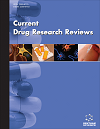
Full text loading...
Gastrointestinal (GI) cancers are an important health problem globally. Natriuretic peptides are hormones that have a crucial role in human physiology. There are a variety of treatments for GI cancer, but conventional therapies have side effects and low efficacy. Studies have demonstrated that natriuretic peptides are therapeutic in different cancer types. Natriuretic peptides are best known for their involvement in regulating blood pressure and blood volume. The anti-tumor effect exerted by natriuretic peptides is via their inhibitory effects on DNA synthesis and by their effects on apoptosis. The anti-proliferative role of natriuretic peptides has been shown in human breast cancer, prostate, colon, pancreatic, lung, ovarian, and other tumors. The roles of natriuretic peptides in these cancers are diverse and not well understood. Therefore, we have reviewed the recent literature on natriuretic peptides in GI cancers as a common malignancy in adults to assess the pathways that NPs are involved in the progression of GI cancers and its effect on the prevention or treatment of GI cancers.

Article metrics loading...

Full text loading...
References


Data & Media loading...

